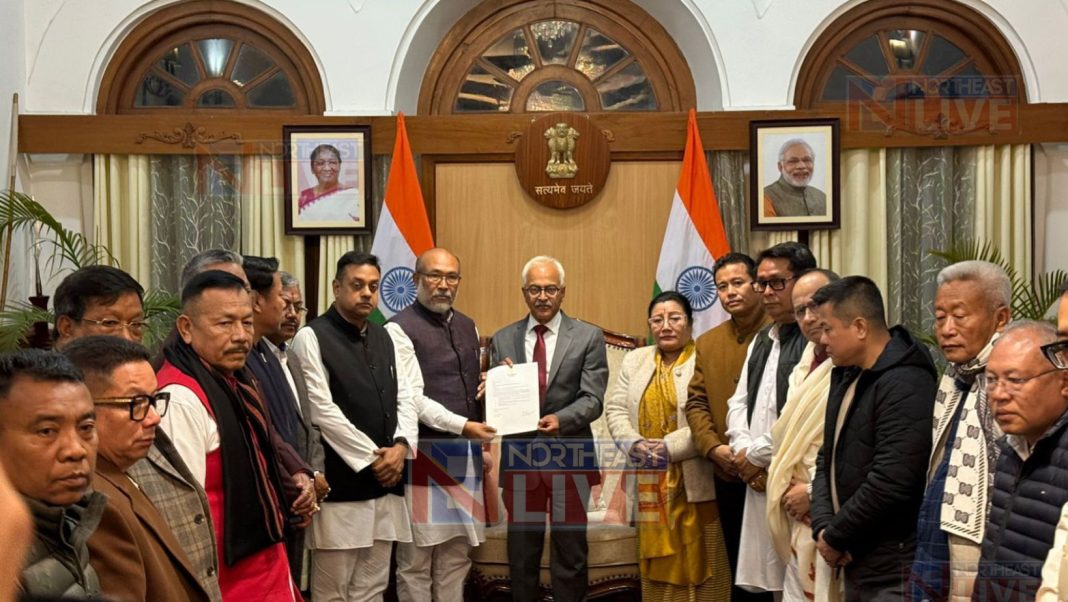In a significant political development, N. Biren Singh, the Chief Minister of Manipur, has tendered his resignation. His decision comes in the wake of prolonged ethnic unrest in the state, which has led to widespread violence, displacement, and political turmoil. With mounting pressure from opposition parties and internal criticism within his party, Singh’s resignation marks a crucial turning point in Manipur’s political landscape.
Ethnic Unrest and Its Impact
For nearly two years, Manipur has been caught in violent ethnic clashes between the majority Meitei community and the minority Kuki groups. These tensions have resulted in over 250 deaths and have forced nearly 60,000 individuals to flee their homes.
The conflict, which began in May 2023, stems from disputes over job quotas, economic benefits, and allegations of illegal immigration. Both communities have accused each other of instigating violence, leading to increased hostilities across different regions of the state. Entire villages have been burned down, and security forces have struggled to restore order despite curfews and restrictions.
Political Pressures Leading to Resignation
As the situation worsened, Biren Singh, who belongs to the Bharatiya Janata Party (BJP), faced intense pressure to step down. Opposition leaders and even members within his own party accused him of failing to control the unrest and of being biased toward the Meitei community. His critics argued that his administration had not taken adequate steps to bridge the widening rift between the warring groups.
The opposition Congress party was preparing to table a no-confidence motion against Singh in the legislative assembly, further adding to the political instability. This move was seen as an attempt to hold Singh accountable for his administration’s handling of the crisis. With growing dissatisfaction among various stakeholders, the calls for his resignation became louder, leaving him with no choice but to step down.
Controversial Policies and Government Response
During his tenure, Singh launched several policies aimed at tackling long-standing issues in Manipur, including a “war on drugs” initiative and strict measures against illegal immigration. While these actions were intended to address drug trafficking and demographic concerns, they inadvertently deepened ethnic divisions.
Kuki tribal leaders alleged that the crackdown on poppy cultivation—part of the anti-drug initiative—was unfairly targeted at their community. The state government defended the measures, stating that they were necessary to curb drug-related crimes and illegal activities. However, this only fueled resentment, as many in the Kuki community saw it as an attack on their way of life and a means to marginalize them further.
Additionally, the government’s efforts to identify and deport illegal immigrants from Myanmar led to further tensions. While Singh’s administration insisted these measures were crucial for maintaining security and economic stability, Kuki groups, many of whom share ethnic ties with Myanmar’s Chin community, viewed the move as discriminatory. This perception widened the gap between the government and the tribal communities, exacerbating the already volatile situation.
The Resignation and Its Aftermath
In his resignation letter, Singh expressed gratitude to the central government for its support during his tenure. He urged authorities to continue efforts to curb illegal immigration and prevent border infiltration, which he believed were key factors contributing to the crisis.
Following his resignation, the Governor of Manipur accepted his decision and requested him to continue in his position until alternative arrangements could be made. The BJP is now faced with the challenge of appointing a successor who can stabilize the situation and restore trust among the people.
The Road Ahead for Manipur
With Singh stepping down, the question remains: who will lead Manipur next? The new leadership will have to address the deep-rooted issues that have fueled the ethnic conflict and take significant steps toward peace and reconciliation.
To rebuild trust, the government will need to engage in transparent dialogue with both the Meitei and Kuki communities. Special focus should be placed on inclusive development policies that benefit all ethnic groups equally. Confidence-building measures such as fair representation in government, economic incentives for affected communities, and impartial law enforcement will be crucial in healing the state’s wounds.
The role of the central government will also be pivotal in ensuring long-term stability in the region. Given the sensitive nature of the conflict, intervention from national leaders may be required to mediate between conflicting factions and implement sustainable peace initiatives.
As Manipur moves forward, the focus must remain on peace, stability, and rebuilding trust among its diverse communities. The leadership that emerges in the coming days will determine whether the state can overcome its divisions and embark on a path of inclusive growth and lasting harmony.



